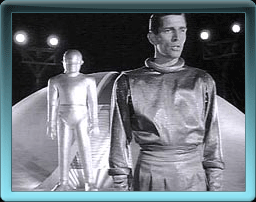
I have a real soft spot for the
1978 version of Superman, so it was with some anticipation that I went to see
Superman Returns yesterday with my eldest son – who is practically the same age now as I was back in ’78. After sitting (and often squirming) through the 2½ hour updated version, let’s just say that
Superman Returns didn’t have nearly the same impact as its predecessor. It was actually quite mediocre, but it’s given me some fodder for a rant.
Like most of my reviews, this one is spoiler ridden, so stop reading now if this poses a problem for you.
Superman Returns is a curious movie in that it is more a re-imagining of the 1978 version than an amalgamation of previous versions or a completely revised approach along the lines of what
Christopher Nolan recently did with the Batman franchise. A number of stylistic and plot elements from the 1978 film were retained, including aspects like Lex Luthor’s attempt to profit from a massive land grab and even the crystalline Fortress of Solitude itself. That said, the writers did alter the canon to a significant degree by having Superman return from a five year space mission in a failed attempt to find any remaining survivors of Krypton, and most surprisingly, the revelation that he has a son – one who looks to be endowed with similar powers.
Superman’s return from his five year hiatus is a key theme in the movie. Disappearing from the world without so much as saying good-bye, Superman’s return is met with mixed emotions, particularly by one Lois Lane who has since married and formed a family. In fact, Lane is set to receive a Pulitzer Prize for a shocking editorial titled, “Why the World Doesn’t Need Superman.” Lane and the inhabitants of Earth, it would seem, have come to grips with Superman’s absence and have learned to cope without their savior; indeed, Lane’s bitter piece was fueled by an existentialist sense of unfair abandonment and could have very well been titled, “Why the World Doesn’t Need God.”
At first I was puzzled by the script writer’s decision to have Superman gone for so long, but the reason eventually dawned on me. Five years. Not an arbitrary number when you realize that we are quickly approaching the five year anniversary of 9/11. Like the arrival of the extraterrestrials in
The Day the Earth Stood Still, Superman’s return is a quasi-messianic example of wish fulfillment in popular culture. Five years after 9/11, and deeply intertwined in the so-called war on terror, Americans are most assuredly looking to the sky for help.

In
The Day the Earth Stood Still, aliens Klaatu and Gort arrive to 1951 Earth in an attempt to rescue a civilization that had only recently come into possession of apocalyptic weapons. Given the trauma of World War II, the rise of the Cold War, and the loss of innocence wrought from the development of planet destroying technology, nervous audiences were offered some (fictional) hope by having (fairly) benign creatures fall from the sky to set things right. God, it appears, was dead -- even in the 50s; if aliens couldn’t save us, after all, then who would?
And like the arrival of Klaatu and Gort, the return of Superman in 2006 is also reflective of contemporary geopolitical concerns and desperatism. When
Christopher Reeve donned the red cape back in the late 70’s, Superman had to address the disturbing rise of urban violence and crime. Today, the stakes are much higher. With the United States under the perceived threat of super-terrorism, and with an incompetent and largely ineffective government in place to deal with the issue, defeatism has led to to those hopes that can only be realized in religious or science fictional outlets.
One could interpret the work of Superman, who works for truth, justice and the American way, as an analogy and rationalization of the geopolitical aggressiveness of the United States.
Superman Returns can also be seen as a metaphor or craving for religious messianism, or simply as an example of escapism and wish fulfillment. Those partial to religious sensibilities will most certainly sympathize with the messianic overtones. Lois Lane, embarrassed by her earlier lack of faith, eventually decides to pen a new editorial -- this time making a case for “Why the World Needs Superman.” Or is that God? It’s
Superman Returns as a call to prayer.
Alternately, given the fact that Superman doesn’t exist in our reality, one wonders if the film is making a case for passivity, despair and escapism. Given the hopelessness of the current geopolitical situation, are we better off disengaging from reality and slipping into dreamy Hollywood diversions?

I certainly hope not. Other post 9/11 science fiction franchises have taken a different approach.
Battlestar Galactica, for example, has a decidedly
West Wing element to it. The show is hard-edged, cynical and at times maudlin, but more representative of current realities than movies like
Superman Returns.
Well, the kid in me that marveled at
Superman in 1978 is most certainly dead, replaced by a thirtysomething sensibility that’s now easily irritated by simplistic and opportunistic pop culture drivel. But even if my tolerance for mindless distractions has withered over the years, it still doesn’t hide the fact that
Superman Returns is a crappy movie. This film, while desperately trying to retain the majesty of
Superman: The Motion Picture – it usurped the old musical score and
Marlon Brando’s performance – utterly failed to incorporate the charm, poignancy, and depth of its forerunner.
And worse, by unabashedly making this a post 9/11 wish fulfillment movie, its creators have pandered to one of the more pathetic elements of American society and human nature itself.
Tags:
superman returns,
superman,
reviews,
movie reviews.











